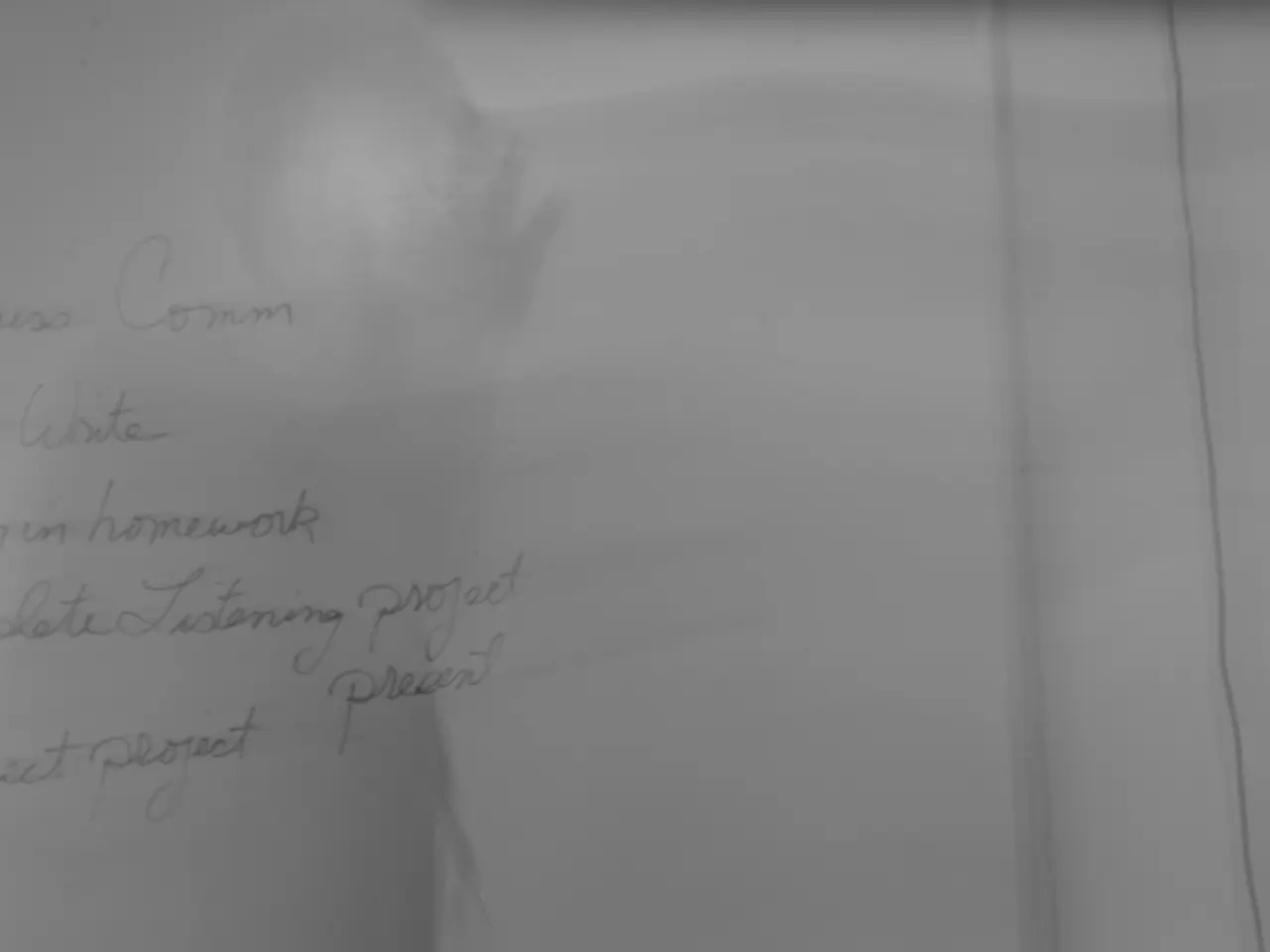Businesses in Dallas are experiencing effects as a result of the Trump Administration's immigration policy, according to a recent survey by the Dallas Fed.
In the heart of Texas, a state known for its booming economy and diverse workforce, the Trump Administration's immigration policy has left a significant mark on businesses and the labor market.
A study, initially published in September 2024 and since removed from the agency's website, suggested that immigrants are arrested at less than half the rate of native-born citizens for violent and drug-related crimes. However, the policy environment shaped by the Administration has created challenges for Texas businesses seeking to hire immigrant workers.
A recent Dallas Federal Reserve survey highlights these challenges. Approximately 13% of businesses reported that their ability to hire immigrant workers has been impacted by recent immigration policy. Forty-three percent of businesses hiring this July cited a lack of available applicants as the biggest hurdle to hiring new workers, with difficulty finding workers who have work permits and a reduction in the number of foreign-born applicants being the top two reasons cited.
The immigration policies have caused notable reductions in labor supply, threatening growth in sectors such as construction, transportation, warehousing, and hospitality, which often rely on immigrant workers between 25% to 45% of their workforce. This labor shortage could potentially curb Texas's recent economic boom, with forecasts suggesting that the reduction in immigrant workers may reduce the state's economic growth rate by 0.5 to 1.0 percentage points.
In response to these hiring challenges, 48% of the affected businesses increased hours for existing employees, and 38% increased wages or benefits. Notably, 7% of businesses expect their ability to hire immigrant workers to be impacted by immigration policy in the future. Among these businesses, 42% plan to use automation and AI to fill the gap.
The Trump Administration has framed immigrants without legal status as violent criminals invading the country. However, it's important to note that not hiring someone based on their national origin violates the Civil Rights Act of 1964. Chad Pearson, a labor historian at the University of North Texas, stated that businesses historically support immigration as it provides access to cheaper labor.
The Administration's immigration policies have also been linked to job losses beyond immigrant workers. Increased deportations are projected to cause millions of job losses affecting both immigrants and U.S.-born workers in Texas, especially in construction, where employment could shrink by nearly 19% relative to 2024 levels.
Experts speculate these policies may induce negative net migration, shrinking Texas’s labor force and the overall economy. This could lead to broader labor market disruptions, as the depletion of immigrant labor pools has led to "negative labor supply shocks," meaning that labor shortages in immigrant-heavy industries cannot easily be offset by native-born workers, leading to higher costs and slower growth for Texas businesses.
In February, 18% of businesses surveyed by the Dallas Fed expected immigration policy to impact their ability to hire and retain workers. As the Trump Administration aims to deport millions of people by the end of its term, these challenges are expected to persist.
References:
- Dallas Federal Reserve Survey on Texas Businesses
- Study funded by the Department of Justice's research agency
- ICE aims to deport millions of people by the end of Trump's term
- Trump's "One Big Beautiful Bill"
- CBS News report on Trump's "One Big Beautiful Bill"
- Chad Pearson, labor historian at the University of North Texas
- Not hiring someone based on their national origin violates the Civil Rights Act of 1964
- Texas unemployment rate of 4%
- The survey allows businesses to submit comments, providing direct insight into business executives' thoughts.
- The Trump Administration's immigration policies have created challenges for Texas businesses seeking to hire immigrant workers, with 48% increasing hours for existing employees and 38% increasing wages or benefits to compensate.
- Experts suggest that the Administration's immigration policies may induce negative net migration, shrinking Texas’s labor force and economy, leading to broader labor market disruptions and higher costs for businesses.
- Notably, 7% of businesses expect their ability to hire immigrant workers to be impacted by immigration policy in the future, with 42% planning to use automation and AI to fill the gap, potentially exacerbating the issue of job losses due to immigration policy.








